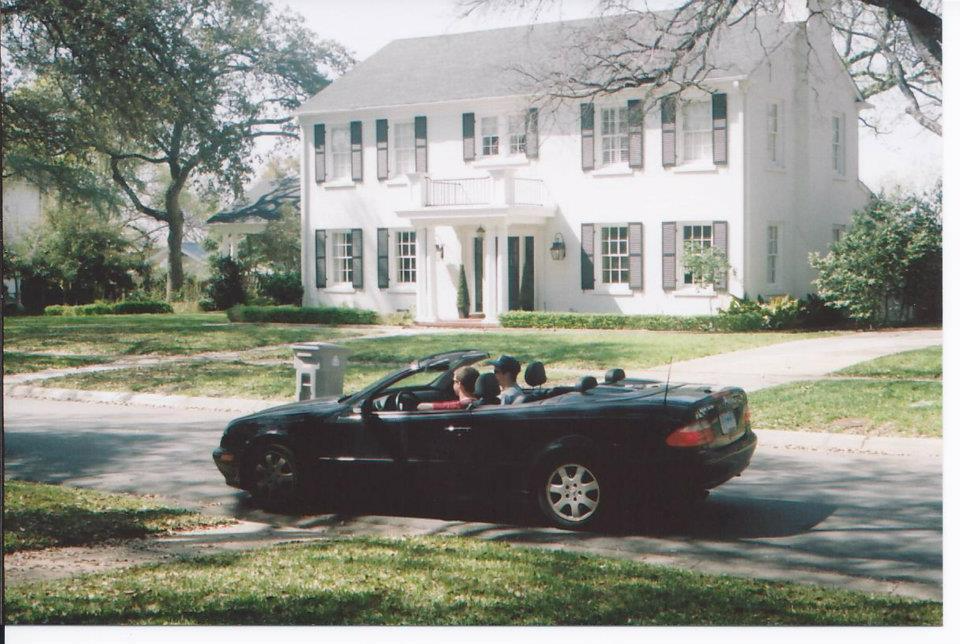
Photograph courtesy of Colin Ainsworth.
“I want to wrap / my face tight with a silk scarf and spiral down / a Cinque Terre highway in an Alfa Romeo,” writes Olivia Sokolowski in her poem “Lover of Cars,” which appears in the new Fall issue of the Review. And who doesn’t, when you put it like that? In celebration of Sokolowski’s poem, we’ve commissioned writers to reflect briefly on cars they’ve loved, struggled with, coveted, and crushed on.
My parents both worked, and they both made good money, and I needed a car. It all felt very incidental. They had this image in their heads of an ideal weekend—the two of them driving around the Texas Hill Country with a large, iced drink in the cup holder. They’re sitting in the front seats, vintage-by-way-of-long-term-ownership Ray-Bans strapped on tight, and the top is, of course, down. After some searching, they found a fairly cheap used Mercedes-Benz CLK 320—convertible, two doors, soft top, black paint, black interior. They said I could drive it when they didn’t want to, which turned out to be basically every day.
I often forget that this can sound pretty cool. Not only the notion of having a car at sixteen, being able to get around or away if I needed or wanted to, but also that the car was a murdered-out drop top. It is cool to have wheels, especially in Texas. We lived in a suburb outside the Austin city limits, but my parents both grew up in small towns, one in South Texas and the other in the Panhandle. Getting a car, for them, had been the first notion of a kind of promise to leave those small towns. Leaving was, of course, the coolest thing a teenager could do—that great cliché articulated to me when my dad played me Bruce Springsteen songs. My parents saw this car and saw themselves having left, and they saw me in it, years later, as a kind of Ferris Bueller—loud, omniscient, and abjectly capable.
I was very grateful to have a car, but I was not Ferris Bueller. I was not the Fonz. I was not “cool,” per se, though not exactly uncool, either. I never figured out how to explain this properly to my parents—that there was a certain kind of guy who drove this car and that that guy wasn’t me. It would be breaking some news to them. What do you mean our son isn’t the chillest guy at the Episcopal school?
The car was also a clunker. Sensitive, temperamental, like the dog down the block. The black-on-black in a summer drought, a dozen consecutive days of temperatures over 100 degrees, was unbearable. There was no way to air it out: the soft top trapped the heat, but when the top came down, the sun came in. I’d blast the AC for an hour straight and pray that it would still run the next day. A foreign car, too, requires expensive, high-octane gas. This was not ideal.
I have only one photo of myself and this car—a film photo of me and my friend picking up another friend in a nice part of West Austin. There’s a big beautiful white house in the background, the black car in the foreground, top down, and me and my friend in the front seats on a sunny day. I see the photo, with its Tumblr-era look, as a kind of coda to my parents’ vision of that car. It seems to capture a different day, an adjacent reality, one where I hop into the driver’s seat without opening the door, and where I feel less out of place under the vast Texas sun.
Colin Ainsworth is a writer who lives in Brooklyn.
from The Paris Review https://ift.tt/SdyQj7L
Comments
Post a Comment